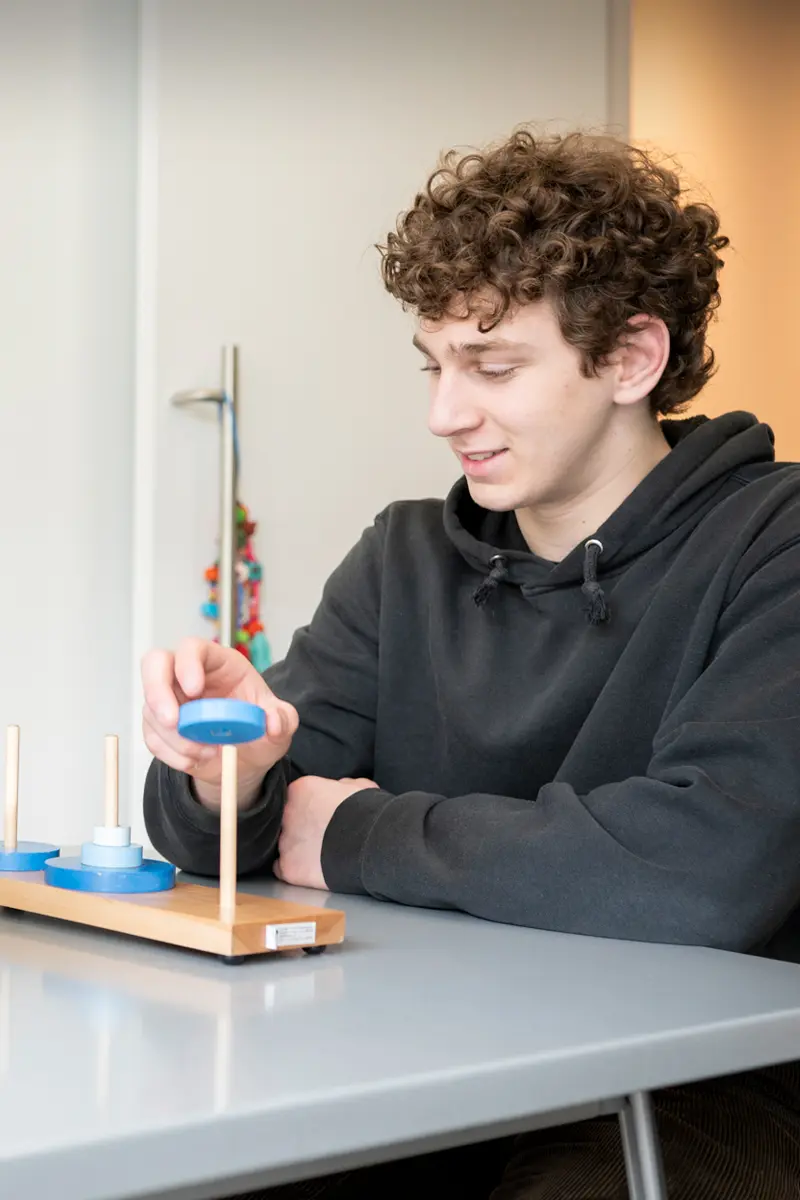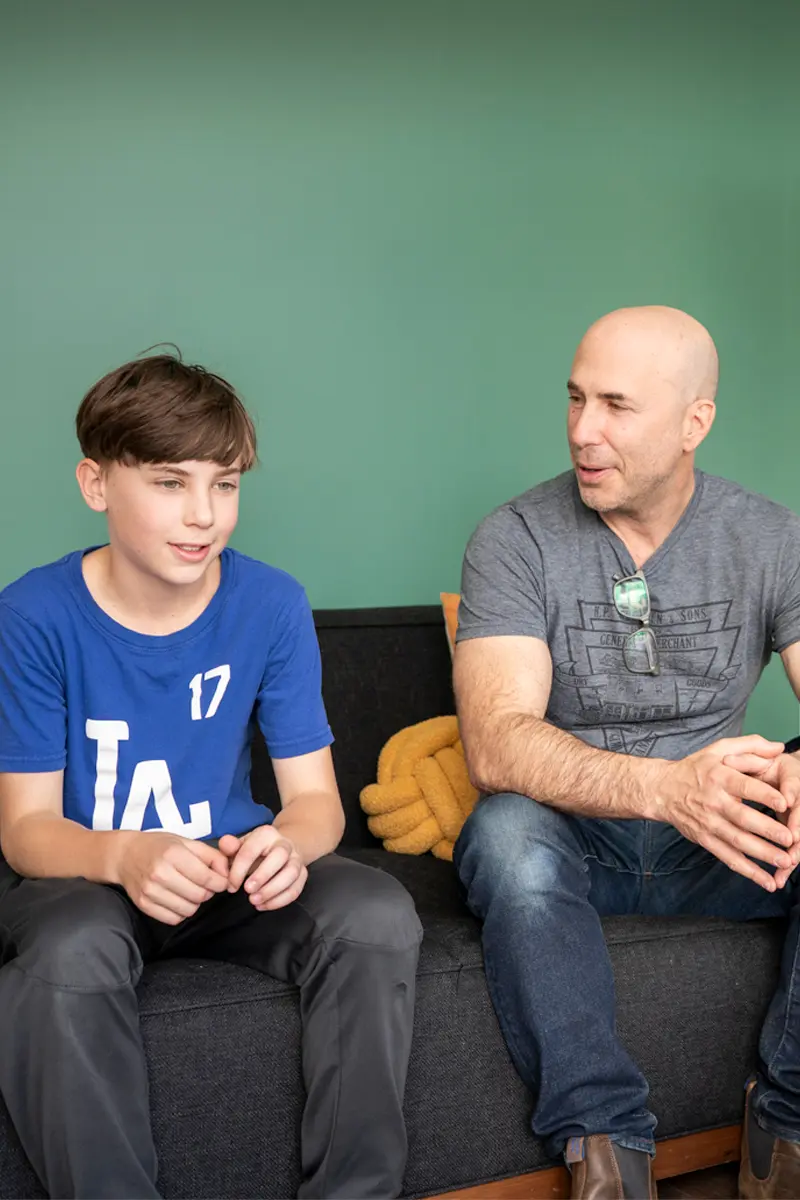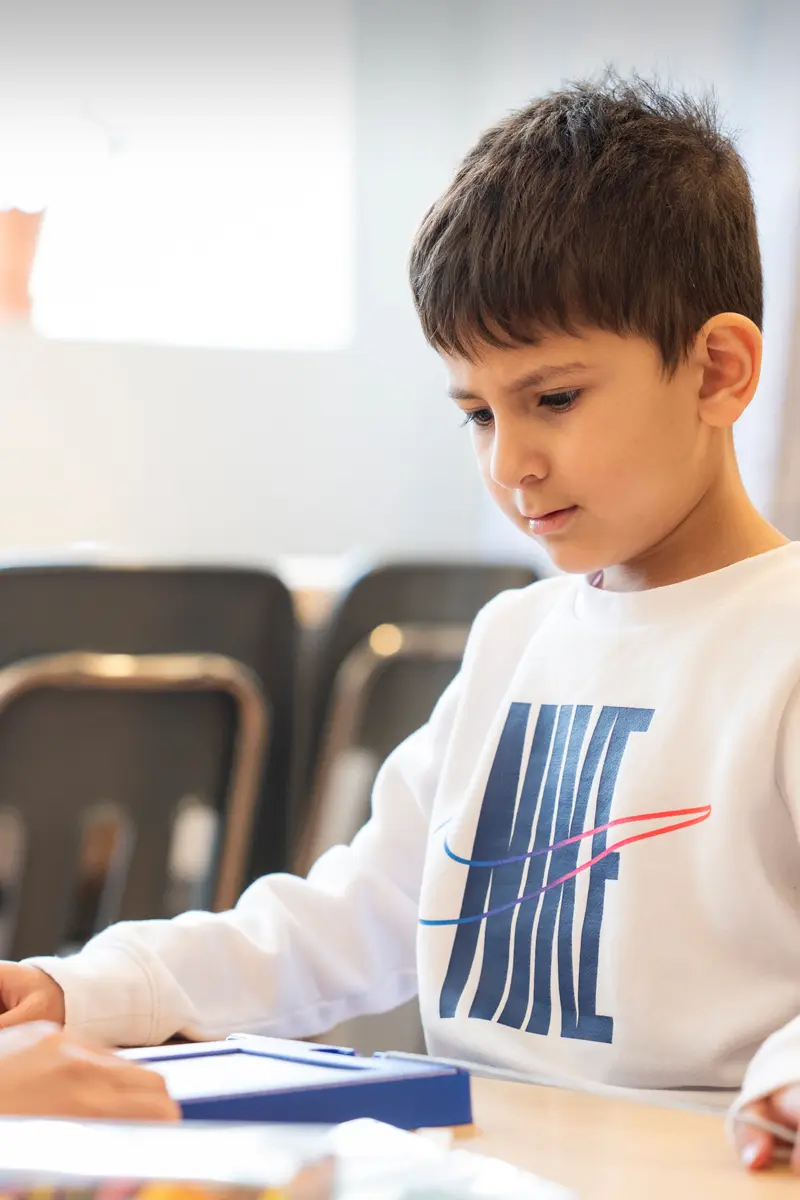What is a learning disability?
A learning disability is a neurodevelopmental condition that affects how a person processes, stores, or communicates information. It is not a reflection of intelligence or effort. These challenges are lifelong but manageable, especially when identified early and supported with the right strategies.
Learning disabilities typically show up when a child is learning foundational academic skills such as reading, writing, or math. They may also impact executive functioning, working memory, or how a child takes in and expresses information.
Good to know
A learning disability is different from a learning difficulty. Learning difficulties may arise from other causes—such as anxiety, attention challenges, or gaps in schooling—and may not be persistent once the underlying issue is addressed.
Types of learning disabilities
Learning disabilities can look different from one person to another. They are often grouped by the area of learning they impact. The most common categories of learning disabilities include:
Reading disabilities (Dyslexia)
Dyslexia affects how a person decodes words, reads fluently, or understands what they read. It can impact spelling and written expression as well.
Writing disabilities (Dysgraphia)
This type of learning disability affects an individual’s ability to write clearly, organize their thoughts on paper, or use proper spelling and grammar. It may also include fine motor difficulties.
Math disabilities (Dyscalculia)
People with dyscalculia may struggle to understand number concepts, remember math facts, or apply strategies to solve problems.
Nonverbal learning disabilities (NVLD)
NVLD affects visual-spatial processing, abstract thinking, and social perception. An individual may be verbally strong but struggle with organization, social cues, or interpreting visual information.
Auditory processing disorder
This is a difficulty with how the brain processes spoken information—not a hearing problem. It can impact following directions, understanding classroom discussions, or distinguishing between similar sounds.
Possible signs of a learning disability
Learning disabilities can present themselves in many ways. If your child is showing challenges like these, it may be helpful to seek an assessment and get support.
- Difficulty sounding out unfamiliar words or remembering whole words previously learnt
- Challenges with fluency, accuracy and/or speed of reading
- Difficulty recalling names
- Avoiding reading or writing tasks
- Mixing up letters or numbers
- Trouble remembering math steps
- Poor spelling or grammar despite practice
- Struggles with organizing written work
- Difficulty following multi-step directions
- Trouble copying from the board or managing time
Let’s uncover what’s behind your child’s learning challenges and find the support they need to reach their potential.
Get SupportSupport for learning disabilities
At Red Oak we offer tailored, targeted, and strength-based academic interventions. Our teachers support all aspects of literacy and math development, with or without a formal learning disability diagnosis.
- Executive function coaching provide individualized, evidence-based interventions that match each student’s learning profile. We begin with an assessment to identify strengths and areas of need, and continually monitor progress to ensure that we’re closing gaps and building skills. Our coaches are qualified teachers who can also provide academic support and many of them have specialty math or literacy support expertise.
- We offer psycho-educational assessments to help families understand their child’s learning needs and guide school accommodations or supports.
- Educational consulting can help you explore school options and advocate effectively for your child.
Whether your child is struggling with reading, writing, math, or learning strategies—we’re here to help them feel capable and confident.
Learning disability assessments
A psycho-educational assessment is the most effective tool for identifying learning disabilities. This assessment explores your child’s cognitive abilities, academic skills, executive functioning, and other developmental factors that may be influencing their learning.
If your child meets criteria, a psycho-educational assessment can provide a diagnosis of a learning disability, uncover areas of strength, provide recommendations for home and school, and outline a tailored plan for intervention.
If you think your child has a learning disability, a psycho-educational assessment will provide clarity.
Book a psycho-educational assessment:
How to cope with learning disabilities
While learning disabilities are lifelong, they don’t have to hold your child back. Children and teens with learning disabilities can thrive when they have:
- Targeted, evidence-based instruction
- Insight into their learning profile complete with their strengths and deficits
- Supportive educators who understand their learning profile
- Strategies to build confidence and independence
- Accommodations in school (e.g., extra time, audiobooks, use of technology)
- A strong support system at home and at school
Helping your child understand their learning differences—and building tools for self-advocacy—is an important step toward long-term success.
ADHD and learning disabilities
It’s common for learning disabilities and ADHD to co-occur. While they are different conditions, they can influence each other. For example, a child with ADHD may struggle with reading or writing not because of a learning disability, but because it’s hard to focus or stay organized. Conversely, a child with a learning disability may appear inattentive due to the frustration of falling behind.
Understanding how ADHD and learning disabilities overlap is key to creating the right support plan.
Common questions about learning disabilities
Is ADHD a learning disability?
No. ADHD is not considered a learning disability, but it can make learning more difficult. Many children with ADHD also have a learning disability—and vice versa.
Is Autism a learning disability?
Autism is a neurodevelopmental condition, not a learning disability. However, some Autistic children may also have a learning disability.
ADHD or learning disability? Is there a difference?
Yes. ADHD affects attention, behaviour, and executive function, while learning disabilities impact how a child processes specific academic information. The two conditions often overlap, and assessment can help tell them apart—or identify both.
Is there a difference between learning difficulties and disabilities?
Yes. Learning difficulties can be temporary or related to external factors (like anxiety or disrupted schooling), while learning disabilities are brain-based and more persistent. Both deserve attention and support, but they may require different approaches.










